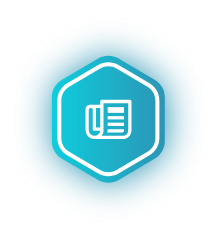Face to face job interview preparation
Author: IntaPeople | Date published: 03/08/22


Preparation is essential to a successful job interview. Find out more with our helpful face to face interview tips.
How can I be successful in an interview?
Job interview, questions to ask
Face to face interview questions
Face to face job interview dos and don’ts
How can I be successful in an interview?
You’re not alone if a face to face job interview fills you with nerves and dread. You want to make a good impression but the more you worry the more likely it is that nerves will get the better of you and affect your ability to function.
Your interviewers are looking to appoint someone who genuinely wants to join their company, who shows enthusiasm for the role, is committed to working in their offices, is well presented, and demonstrates excellent interpersonal and communication skills.
An interview is a two-way communication process. It is your opportunity to find out more about the position and it’s an opportunity for the interviewers to assess whether you have the relevant skills and experience required.
The interviewers will be looking for someone with confidence and character, who is a team player and will fit in within their company. They will be able to provide more information about the role and the company during the interview.
We advise you prepare answers to commonly asked questions so you can respond confidently and concisely. You may be asked why you are seeking alternative employment, more about your current skills, workload and experience, your long-term plans and what you can offer the company.
We also recommend you prepare some questions to ask the interviewers e.g. what will my day look like? What is the team atmosphere like? You may find it beneficial to take a pen and pad so you can take notes during the interview if appropriate.
We have created this advice guide to give you as much help and guidance to ensure your face to face interview goes smoothly.
Job interview preparation
Why preparing for an interview is important?
Preparation is the first essential step towards a successful interview. It’s normal to feel nervous because you want to do your best but if you prepare and practice you can get the better of your nerves and give yourself the best chance of getting the job.
The interviewers will expect you to have visited the company website beforehand and have a brief understanding of what the company does, so it is important to be prepared.
How do you prepare yourself for an interview?
– Make sure you know the exact location, time and date of the interview and the interviewer’s full name.
– Always wear smart business clothes. Don’t dress casually, even if you know the company policy is relaxed.
– Investigate specific, relevant facts about the company; where are their offices? What products and services do they offer? You should also research the company history and growth potential.
– Refresh your memory about your current or former employment; what tasks did you do? What projects did you work on? What results did you achieve? You will be expected to be able to talk about this.
– Think about what questions you want to ask the interviewers. Remember an interview is a two-way process, you should try to determine if the company will be a good fit for you and will provide the opportunity for growth and development.
Job interview, questions to ask
What are good questions to ask at the end of an interview?
Here is a list of potential questions you could ask the interviewer. The answers to these questions should help you qualify whether the role is going to be a good fit for you:
– What exactly will the role involve?
– What does a typical day look like?
– Why is the position available?
– What is the broad culture of the company?
– What induction and training do you offer?
– What sort of people have done well in this sort of role?
– Are there advanced training programmes available?
– What are the company’s key objectives for the next 3 years?
– What are your best-selling products or services?
– Is there room for progression within the company?
– What are the main challenges currently facing the company?
– Could you describe how this role relates to the overall structure of the company?
– How will my performance be measured?
Face to face interview questions
By preparing answers to typical interview questions you will feel more confident and be able to deliver prompt and precise responses. There is nothing worse than being asked a question in an interview and not having a clue what to say.
Here are some typical questions you may be asked in an interview; think about the answers you could give that relate to the requirements of the job specification.
Company-based questions
– What do you know about our company?
– What interests you about our company’s products/services?
– Why would you like to work for us?
– What attracted you to this position?
– What qualities do you think you could bring to our business?
Career-based questions
– Why did you choose a career in [……………]?
– What qualifications do you possess?
– What were your responsibilities in your last role?
– What have you learned from the previous jobs you have had?
– Is there any training you are looking to undertake in the near future?
– How many sick days have you taken in the past year?
– Are you willing to be flexible in your work hours?
– How good are you at prioritising your workload?
– Where do you see yourself in 5 years?
– What are your salary requirements?
Competency-based questions
– Tell us about the biggest change that you have had to deal with. How did you cope with it?
– Describe a situation where you had to explain something complex to a colleague or a client. Which problems did you encounter and how did you deal with them?
– Tell us about your biggest failure. How did you recover and what have you learnt from that incident?
– Describe a situation in which you were a member of team. What did you do to positively contribute to it?
– What are your main strengths and weaknesses?
– What have you done in your career that shows initiative?
Personality-based questions
– What are your hobbies?
– How would you describe yourself in three words?
– Is it easy for you to get to our office?
– How do you evaluate success?
– Are you willing to relocate?
– What style of management do you prefer?
– What kind of job are you looking for?
– Do you have any questions?
Face to face job interview dos and don’ts
Throughout the interview the interviewers will be assessing your strengths and weaknesses as well as your attitude, ability, skills and personality.
DO arrive several minutes early. Late arrival for a job interview is never excusable. If you are delayed, try to let someone know beforehand.
DO dress smartly.
DO shake hands firmly at the beginning and end of the interview.
DO wait until offered a chair before sitting. Sit upright, always look alert and interested. Be a good listener as well as a good talker. Smile.
DO engage the interviewer using strong and confident eye-contact.
DO try to gather a full understanding of the position and duties early in the interview, so you can effectively relate your appropriate background and skills.
DO ensure your strengths are presented to the interviewer in a factual and sincere manner. Your objective is to sell yourself and make the interviewer aware of the potential benefits you can bring.
DO communicate your determination to get the job throughout. It’s better to be in a position where you can choose from several jobs, rather than only one.
DO remember to ask the interviewer some questions at the end to show you are interested and to find out everything you need to know about the role and the company.
DO thank the interviewer for their time at the end.
DO ask for a glass of water at the start of the interview. Sipping on water may help calm your nerves and will also give you time to think if you are struggling on a question.
DON’T make negative remarks about your present or former employers or colleagues.
DON’T over-talk. If the interviewer steers conversation towards politics or economics, it is usually best to respond in reserved, non-committed fashion.
DON’T ask about salary, holidays or bonuses at the initial interview, but be aware of your market value and be prepared to specify your required salary or range.
DON’T stray away from the question.
